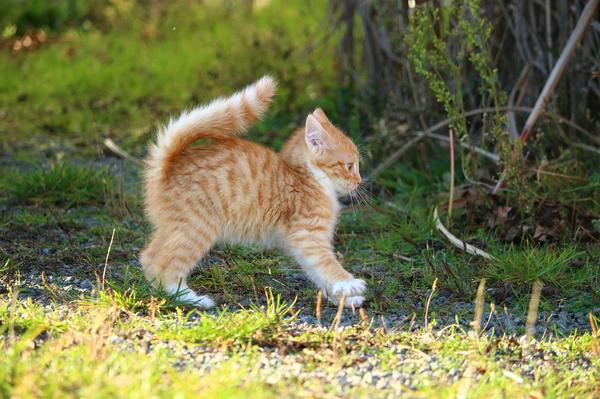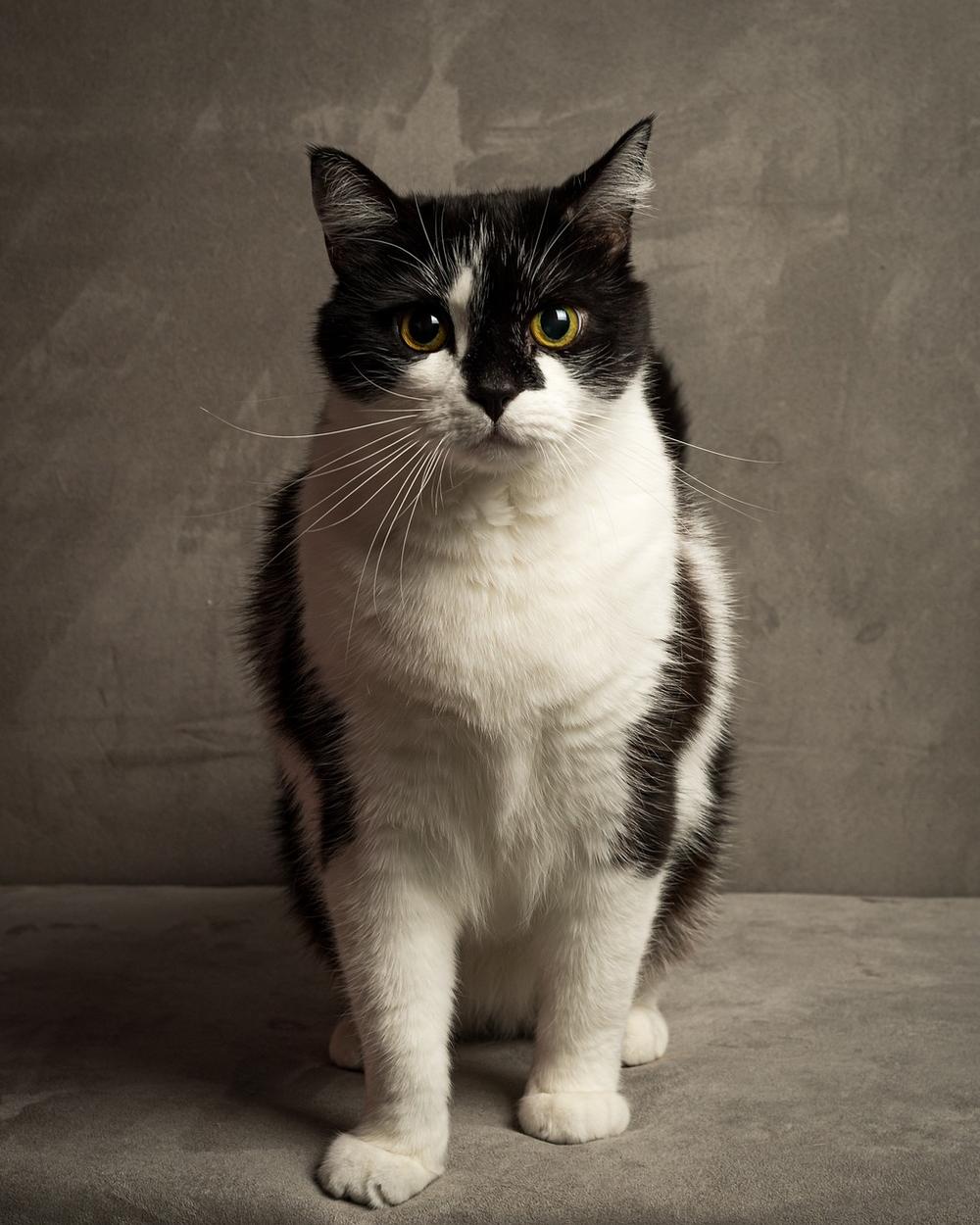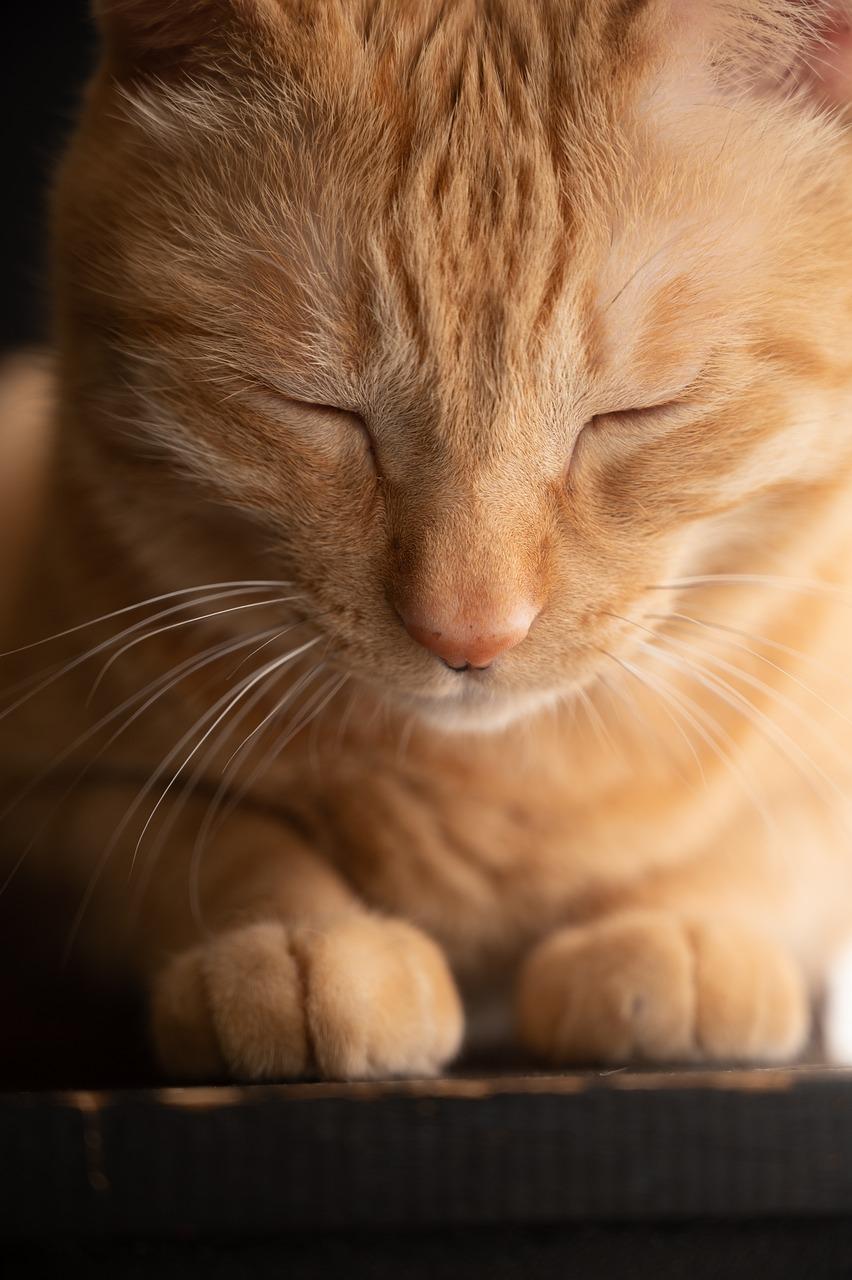What Does Really It Mean When a Cat Screams or Yells?

Do you hear that?
The piercing shriek that slices through the air.
The gut-wrenching sound that sends chills down your spine.
The unmistakable cry that leaves you feeling helpless and concerned.
What does it mean when a cat is screaming? 😱
Keep reading to find out.
Why Do Cats Scream at Night?
Cats screaming at night: It could be a nightmare
Listen, cat owners sometimes go through this freaky thing - their cats screaming at night.
It’s like when we humans wake up freaking out from a bad dream, you know?
Well, guess what?
Cats do it too!
And there can be several reasons why they do it. If you don't know the cause, it's a good idea to ask a vet who knows all about our feline friends.
Female cats in heat and outdoor activities may trigger screaming
Here's the deal with this one, folks.
Sometimes unspayed female cats get into these moments where they start caterwauling.
Seriously, you wouldn’t want to be stuck in a room with them during those times.
But wait, there's more!
Outdoor cats might surprise you with some crazy late-night screaming as well. They’ve got all these hunting and mating activities going on that can get pretty wild.
So, yeah, screaming is basically their way of telling everyone who's the boss around here.
Senior cats and temperament play a role
Now let’s talk about the older kitties.

Poor senior cats have their own struggles, like night blindness, separation anxiety, or even dementia. No wonder they scream at night...
Just imagine trying to find your way around in the dark or feeling lonely while everyone else is asleep. Tough, right?
But hey, it’s not all doom and gloom.
Some cats are just more prone to screaming based on their personalities and environments.
The key is to comfort them with playtime and lots of love.
Oh, and by the way, don't reward excessive meowing, okay?
That would only encourage more of that behavior.
That’s enough about screaming cats for now. It’s time for both you and me to take a break and get some rest.
Until next time, my friend!
And if you still find yourself wondering why female cats scream when they mate, I have the answer for you.
In my blog post, I dive deep into this fascinating behavior and explain the reasons behind it.
So, if you want to discover the secrets of feline mating calls and gain a better understanding of your furry friend, make sure to check out my article on Why Do Female Cats Scream When They Mate.
Different Sounds Cats Make
Cats make different sounds to show how they feel or what they want. Here are twelve distinct noises that cats use:
- Chattering: When they see prey and get excited.
- Screaming: High-pitched yowling which could mean they're aggressive, sick, in heat, or protecting their territory.
- Meowing: They meow for different reasons—greetings, specific desires, surprise, pain, or when they're unhappy.
- Purring: Usually means they're happy, but sometimes they do it when they're anxious or concerned.
- Hissing: Shows they feel threatened or angry.
- Growling: Means they're scared or trying to protect their territory.
- Snarling: Just like growling, it shows fear or territorial concerns.
- Yowling: It suggests they're worried, uncomfortable, have territory problems, mating issues, or they're bored.
- Hypervocalization: Some confused cats excessively meow due to conditions like dementia, hyperthyroidism, or high blood pressure.
- Naturally Talkative Breeds: Certain breeds like Siamese cats are known to meow a lot because they want something.
- Chirping: Short, high-pitched sounds cats make while hunting or playing and feeling excited.
- Roaring: Male cats do this during sexual encounters.
Cats use various vocalizations such as meows, purrs, hisses, growls, chirps, and yowls to convey their emotions, plans, and requirements to humans.
It helps us understand them better. 😺
Now, you might be wondering about the specific reasons why a cat may continuously scream.
Well, changes in appetite can be a potential warning sign of cancer in cats.
But here's the thing...there are other situations that require medical attention too...
Pet Cancer Awareness Month: Warning Signs to Look Out For
Changes in appetite can be a potential warning sign of cancer in cats.
If your feline friend suddenly starts eating more or less than usual, it is something you should pay attention to.

On top of that, it's advisable to take your cat to the vet if it continuously screams. Unusual vocalization may indicate a medical concern that needs attention. And when it comes to senior cats, you must closely monitor any hypervocalizing behavior.
As our beloved companions age, we want to ensure they are not experiencing any pain or discomfort.
Always prioritize your cat's health and well-being.
What Your Cat's Nightly Screams Really Mean
Key Takeaways:
- Cats may scream at night for various reasons, and veterinary guidance is advised.
- Unspayed female cats in heat may caterwaul, while outdoor cats may scream during hunting or mating activities.
- Senior cats that scream at night could be dealing with issues like night blindness, separation anxiety, or dementia-related confusion.
- Cat temperament and environment play a role in their likelihood to scream.
- Hypervocalization in older cats may be due to sensory decline or anxiety, and interactive sessions can help reduce this behavior.
- Different cat sounds indicate various emotions, desires, and needs.
- Meowing has different meanings depending on duration, pitch, and context.
- Purring can indicate delight or agitation.
- Hissing, growling, and snarling denote threat or fear.
- Yowling implies worry, discomfort, territorial issues, mating problems, or boredom.
- Cats may scream due to pain, fear, confusion, mating, or as a warning.
- Hypervocalization can be related to dementia, hyperthyroidism, or high blood pressure in confused cats.
- Some breeds, like Siamese cats, are naturally talkative.
- Understanding cat vocalizations helps us understand their mood, intentions, and needs.
- Veterinary attention is recommended for continuous screaming or if a senior cat hypervocalizes.
And that wraps up today's article.
If you wish to read more of my useful articles, I recommend you check out some of these: Cat Pee in Car, Why Your Cat Is Scared of the Ceiling Fan, Cat Scared of Tv, Why Does My Cat Try to Bury Her Food, and Why Is My Cat Sniffing Everything All of a Sudden
Talk soon,
-Sarah Davis